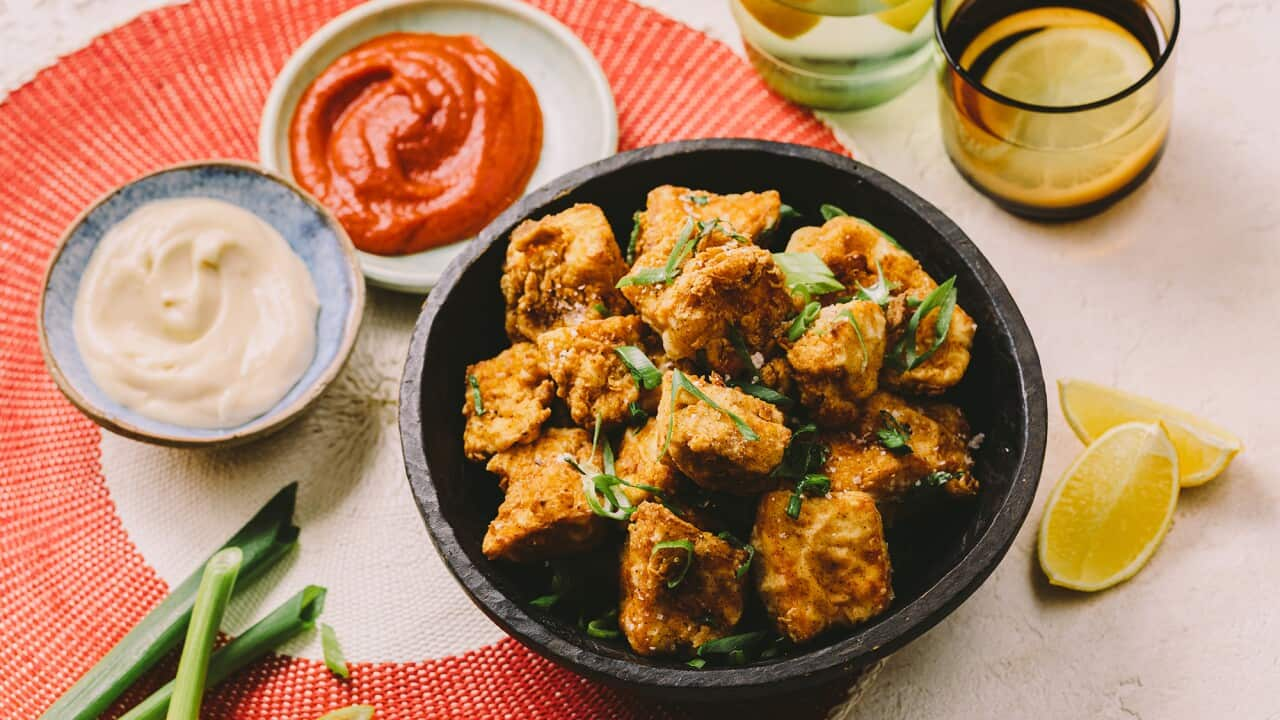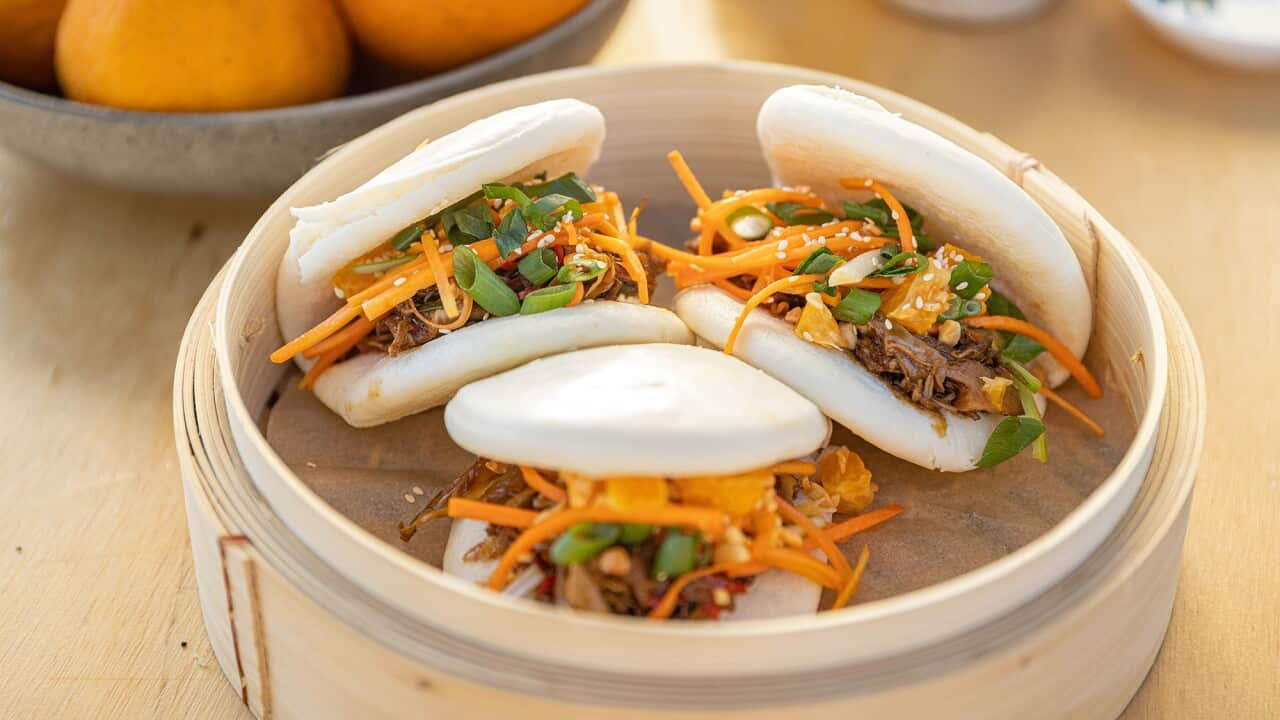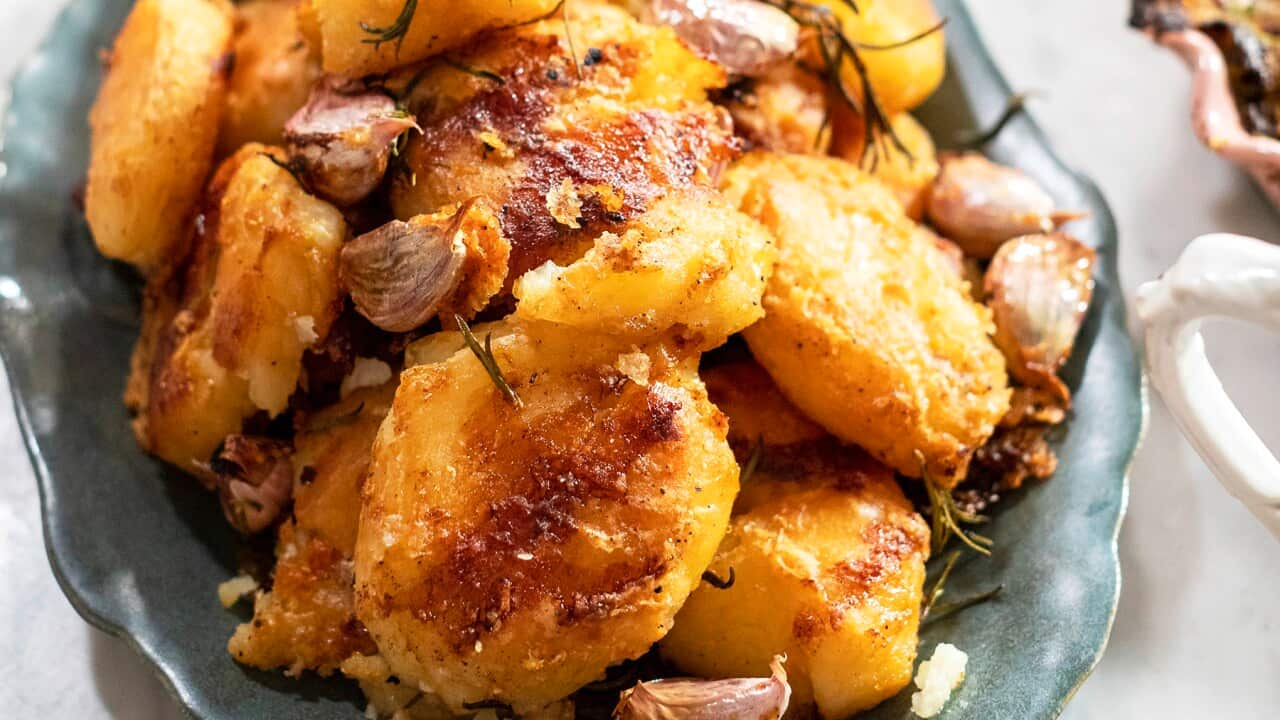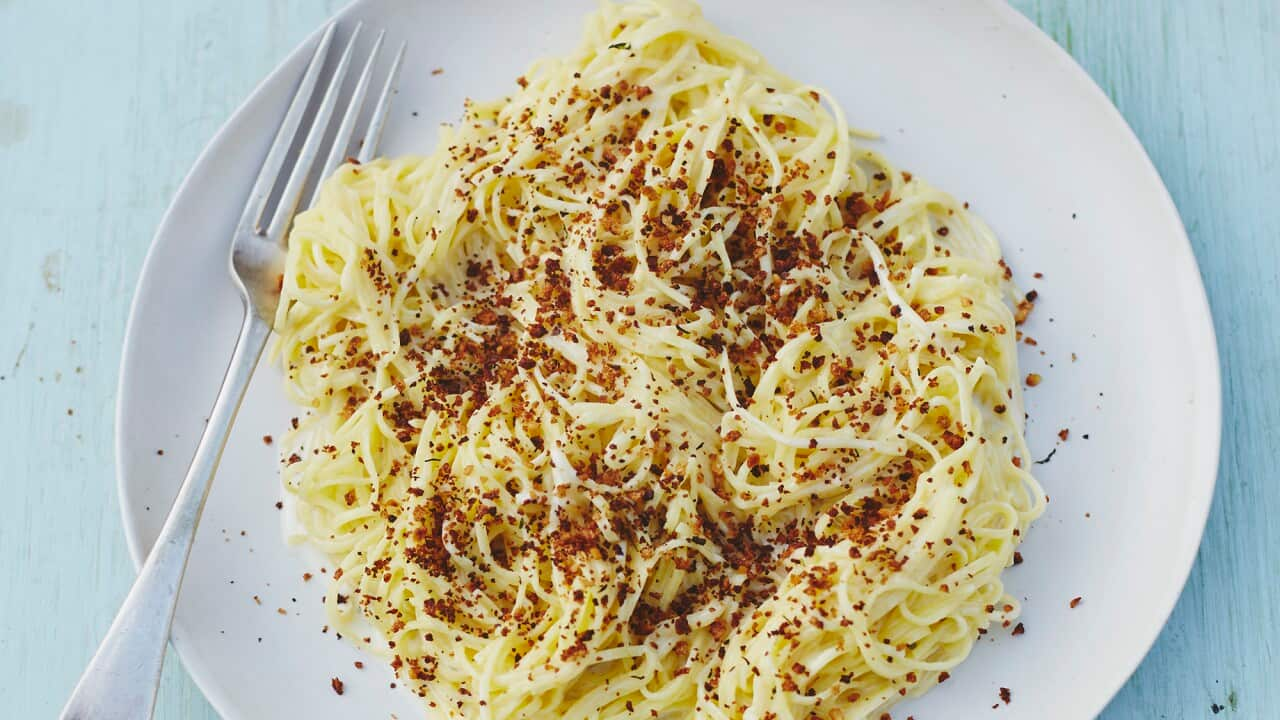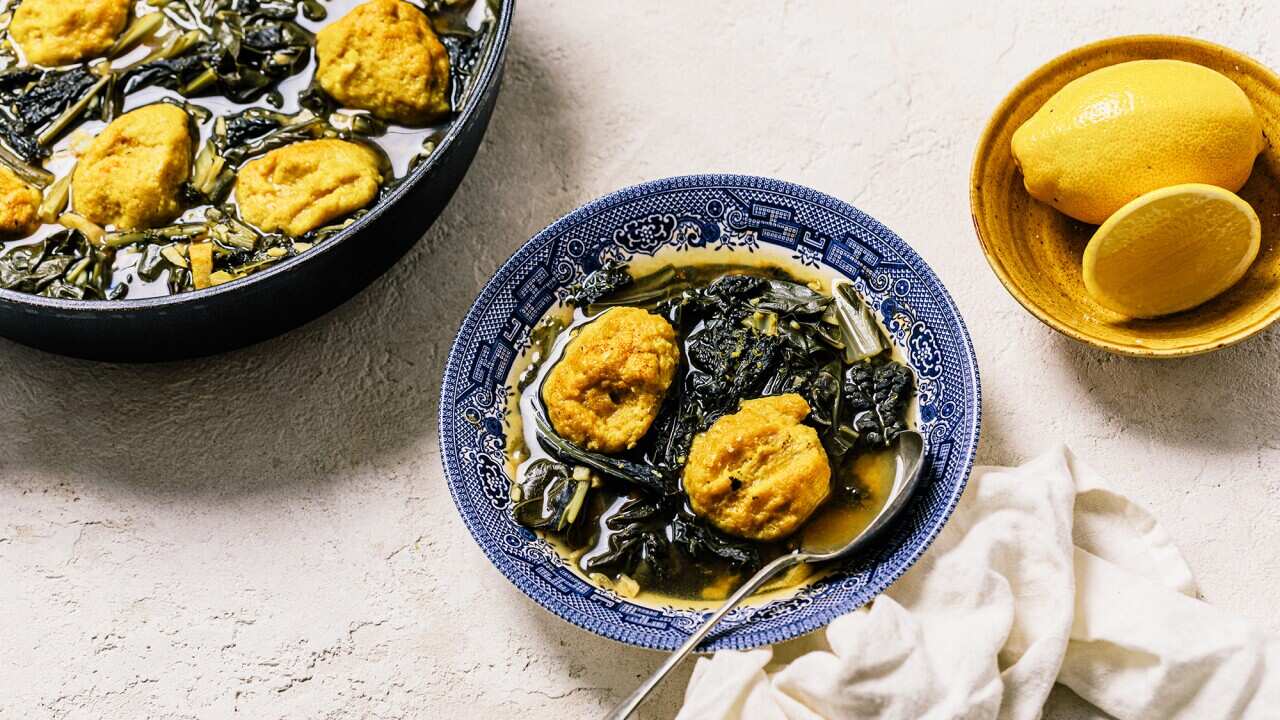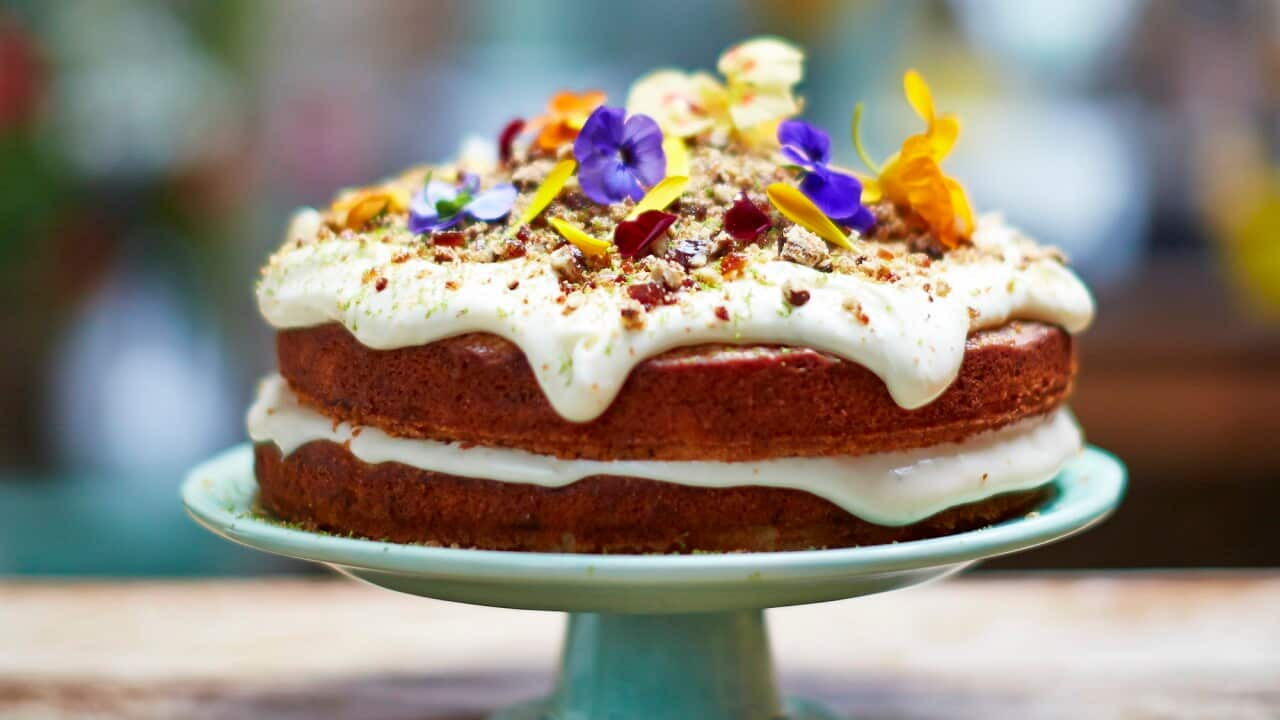serves
2
prep
10 minutes
cook
5 minutes
difficulty
Easy
serves
2
people
preparation
10
minutes
cooking
5
minutes
difficulty
Easy
level
Ingredients
- 2 garlic cloves
- pinch of salt
- 60 ml (¼ cup) vegetable oil
- 60 g chicken breast, with skin on (about 60 g), sliced
- 60 g cleaned squid, scored and thickly sliced
- 260 g wide fresh rice noodles, teased apart
- 2 tbsp coarsely chopped Asian celery leaves (see Note)
- 2 tbsp coarsely chopped coriander
- 2 tbsp thinly sliced spring onions
- 2 tbsp fish sauce
- 2 tsp dark soy sauce, or to taste
- drizzle of light soy sauce
- good pinch white pepper
- good pinch white sugar
- 1 tbsp dtang chai (see Note), rinsed
- 1 duck egg
- 1 chicken egg
- deep-fried unpeeled garlic in oil, extra chopped Asian celery and Siracha sauce (Thai chilli sauce), to serve
Instructions
Place the garlic and salt in a mortar and pestle and pound until a paste forms.
Heat a wok over high heat, then add 2 tablespoons of oil. Add the chicken and squid and toss for 1-2 minutes or until almost cooked. Add the garlic paste and toss for another 30 seconds, then add the noodles and half each of the celery, coriander and spring onion. Stir to combine well - you want the noodles to char but you don’t want the garlic to burn. Add a little extra oil if necessary, but not too much. Add the fish sauce, soy sauces, sugar and pepper, the remaining herbs and the dried vegetables and toss until the noodles are just coloured. Shift the noodles to the side of the wok and add the remaining oil. Crack the eggs into to the wok and fry until slightly firm, then fold the eggs back into the noodles, trying to keep the noodles as in tact as possible.
Serve the noodles, sprinkled with the deep fried garlic and extra Asian celery and serve with a bowl of siracha sauce.
Note
• Asian celery (keun chai) is stronger in flavour and more aromatic than regular celery. The leafy plant with long thin stalks looks similar to flat-leaf parsley. Available from Asian grocers.
• Dtang chai is preserved Chinese cabbage and is available from most Asian grocers. Rinse and drain before using.
Cook's Notes
Oven temperatures are for conventional; if using fan-forced (convection), reduce the temperature by 20˚C. | We use Australian tablespoons and cups: 1 teaspoon equals 5 ml; 1 tablespoon equals 20 ml; 1 cup equals 250 ml. | All herbs are fresh (unless specified) and cups are lightly packed. | All vegetables are medium size and peeled, unless specified. | All eggs are 55-60 g, unless specified.


